Sage (Salvia officinalis) is an aromatic herb widely used in culinary and traditional medicine. Beyond its pleasant flavor and fragrance, sage offers various potential health benefits supported by scientific research. In this article, we will delve into the benefits of consuming sage, backed by scientific references.
Research suggests that sage may enhance cognitive function and memory. A randomized, placebo-controlled study published in the Journal of Clinical Pharmacy and Therapeutics (2003) demonstrated improved cognitive performance in participants who consumed sage extract compared to the placebo group.Furthermore, sage contains compounds such as rosmarinic acid, carnosic acid, and luteolin, which are believed to contribute to its cognitive-enhancing properties. These compounds possess antioxidant and anti-inflammatory effects, which may protect brain cells from damage caused by oxidative stress and inflammation. Additionally, sage has been found to inhibit the breakdown of acetylcholine, a neurotransmitter essential for learning and memory processes. By preserving acetylcholine levels in the brain, sage may support cognitive function and memory retention.Moreover, sage has been traditionally used in herbal medicine for its neuroprotective effects. Studies have shown that sage extract may help prevent age-related cognitive decline and neurodegenerative disorders such as Alzheimer’s disease. Its ability to modulate neurotransmitter activity, reduce oxidative stress, and inhibit the formation of amyloid-beta plaques, characteristic of Alzheimer’s pathology, underscores its potential as a therapeutic agent for cognitive disorders.In addition to its cognitive benefits, sage is also valued for its mood-enhancing properties. Research suggests that sage may exert anxiolytic and antidepressant effects, which could further support cognitive function by reducing stress and improving overall mental well-being. By promoting a calm and positive mood, sage may indirectly enhance cognitive performance and memory consolidation.
Sage has been traditionally used to aid digestion and alleviate gastrointestinal discomfort. Scientific evidence indicates that sage exhibits anti-spasmodic and anti-inflammatory effects on the digestive system. A study published in the Journal of Ethnopharmacology (2016) highlighted sage’s potential in reducing gastrointestinal disorders.Its rich composition of essential oils, flavonoids, and phenolic acids contributes to its therapeutic effects on the digestive system. Sage’s anti-spasmodic properties help relax the muscles of the digestive tract, thereby reducing cramping and discomfort associated with conditions like irritable bowel syndrome (IBS) or indigestion.Moreover, Sage contains rosmarinic acid, a potent antioxidant known for its anti-inflammatory properties. This compound helps alleviate inflammation in the gastrointestinal tract, which can be a common underlying factor in various digestive disorders. By reducing inflammation, Sage may aid in soothing symptoms such as bloating, gas, and abdominal pain.In addition to its direct effects on digestive health, Sage also supports overall gut flora balance. Research suggests that Sage exhibits antimicrobial properties, helping to inhibit the growth of harmful bacteria in the gut while promoting the growth of beneficial bacteria. Maintaining a healthy balance of gut microbiota is crucial for proper digestion and absorption of nutrients, as well as for overall immune function.
The antimicrobial properties of sage make it beneficial for oral health. Research published in the Journal of Clinical Periodontology (2008) showed that sage mouthwash effectively reduced plaque formation and gum inflammation in participants with gingivitis.Furthermore, sage contains compounds such as rosmarinic acid and flavonoids, which exhibit anti-inflammatory properties. These components can help alleviate gum inflammation and reduce the risk of periodontal disease when used regularly as part of an oral hygiene regimen. Additionally, sage is rich in antioxidants, which can help protect the gums and teeth from oxidative damage caused by free radicals.Another notable benefit of sage for oral health is its ability to combat bad breath. The antibacterial properties of sage can help eliminate odor-causing bacteria in the mouth, leading to fresher breath. Incorporating sage into oral care routines, such as using sage-infused mouthwash or chewing on fresh sage leaves, can help maintain oral freshness throughout the day.Moreover, sage has been traditionally used in herbal medicine for its analgesic properties. When applied topically or used in oral rinses, sage may help alleviate oral pain associated with conditions like mouth ulcers or sore throat. Its soothing properties can provide relief and promote healing in oral tissues.
Studies suggest that sage may have a positive impact on managing diabetes. Research published in the Journal of Medicinal Food (2011) found that sage extract lowered blood glucose levels in diabetic rats. Additionally, a study published in the British Journal of Nutrition (2013) indicated that sage tea consumption reduced postprandial glucose levels in healthy individuals.Furthermore, Sage has been traditionally used in various cultures for its medicinal properties, including its potential in managing diabetes. The active compounds in sage, such as rosmarinic acid, flavonoids, and triterpenes, exhibit anti-hyperglycemic effects, which can help regulate blood sugar levels. These compounds are thought to enhance insulin sensitivity, increase glucose uptake by cells, and inhibit the enzymes involved in carbohydrate digestion, thus leading to improved glycemic control.Moreover, sage possesses antioxidant properties that can mitigate oxidative stress, a common complication associated with diabetes. Oxidative stress occurs when there is an imbalance between the production of reactive oxygen species (ROS) and the body’s antioxidant defenses, leading to cellular damage and inflammation. By scavenging free radicals and reducing oxidative damage, sage may help prevent diabetic complications such as neuropathy, nephropathy, and cardiovascular diseases.
Certain compounds found in sage, such as rosmarinic acid and carnosic acid, have demonstrated potential anti-cancer properties. Research published in the Journal of Ethnopharmacology (2012) highlighted the anti-proliferative and apoptotic effects of sage extract on cancer cells.In addition to rosmarinic acid and carnosic acid, sage contains various other bioactive compounds such as flavonoids, phenolic acids, and triterpenes, which contribute to its anti-cancer potential. These compounds work synergistically to exert cytotoxic effects on cancer cells while sparing healthy cells, making sage a promising candidate for cancer treatment and prevention.One notable characteristic of sage is its ability to induce apoptosis, or programmed cell death, in cancer cells. Apoptosis is a crucial process that eliminates damaged or abnormal cells, thus preventing the uncontrolled growth and spread of cancer. Sage extracts have been shown to trigger apoptosis in various types of cancer cells, including those of the breast, colon, liver, and skin, through multiple molecular pathways. Elevate your roast potato game with this delightful recipe featuring the aromatic combination of sage and orange. Jamie Oliver brings you a twist on the classic roast potato, infusing it with fragrant sage leaves and zesty orange zest for a burst of flavor that will tantalize your taste buds. These roast potatoes are crispy on the outside, fluffy on the inside, and bursting with citrusy, herby goodness. Perfect as a side dish for any roast dinner or festive feast, these potatoes are sure to steal the show. Let’s dive into the recipe and bring some culinary magic to your table!
Elevate your roast potato game with this delightful recipe featuring the aromatic combination of sage and orange. Jamie Oliver brings you a twist on the classic roast potato, infusing it with fragrant sage leaves and zesty orange zest for a burst of flavor that will tantalize your taste buds. These roast potatoes are crispy on the outside, fluffy on the inside, and bursting with citrusy, herby goodness. Perfect as a side dish for any roast dinner or festive feast, these potatoes are sure to steal the show. Let’s dive into the recipe and bring some culinary magic to your table!
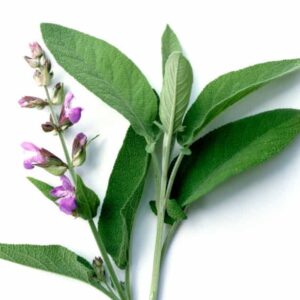
Antioxidant and Anti-Inflammatory Properties
Sage is rich in antioxidants, such as polyphenols and flavonoids, which help combat oxidative stress and inflammation in the body. A study published in Food Chemistry (2010) highlighted the potent antioxidant activity of sage extracts, indicating its potential role in preventing chronic diseases.Furthermore, Sage contains specific compounds like rosmarinic acid and carnosol, which contribute significantly to its antioxidant and anti-inflammatory properties. Rosmarinic acid, in particular, has been studied for its ability to reduce inflammation and protect against oxidative stress-related damage to cells and tissues. It works by scavenging free radicals and inhibiting inflammatory enzymes, thus potentially lowering the risk of chronic diseases such as cardiovascular ailments, diabetes, and certain types of cancer.Moreover, Sage exhibits a unique ability to modulate immune responses, which further enhances its anti-inflammatory effects. Its bioactive components can regulate the production of inflammatory cytokines and mediators, thereby promoting a balanced immune system response. This modulation of immune activity not only helps in managing inflammation but also contributes to overall immune health and resilience against infections.Additionally, the anti-inflammatory properties of Sage extend to its traditional uses in alleviating conditions like sore throat, cough, and gastrointestinal discomfort. Its extracts have been found to possess soothing effects on mucous membranes, reducing inflammation and irritation. This makes Sage a popular choice in herbal remedies and natural therapies aimed at relieving various inflammatory conditions. Cognitive Function and Memory Enhancement
Cognitive Function and Memory Enhancement
Research suggests that sage may enhance cognitive function and memory. A randomized, placebo-controlled study published in the Journal of Clinical Pharmacy and Therapeutics (2003) demonstrated improved cognitive performance in participants who consumed sage extract compared to the placebo group.Furthermore, sage contains compounds such as rosmarinic acid, carnosic acid, and luteolin, which are believed to contribute to its cognitive-enhancing properties. These compounds possess antioxidant and anti-inflammatory effects, which may protect brain cells from damage caused by oxidative stress and inflammation. Additionally, sage has been found to inhibit the breakdown of acetylcholine, a neurotransmitter essential for learning and memory processes. By preserving acetylcholine levels in the brain, sage may support cognitive function and memory retention.Moreover, sage has been traditionally used in herbal medicine for its neuroprotective effects. Studies have shown that sage extract may help prevent age-related cognitive decline and neurodegenerative disorders such as Alzheimer’s disease. Its ability to modulate neurotransmitter activity, reduce oxidative stress, and inhibit the formation of amyloid-beta plaques, characteristic of Alzheimer’s pathology, underscores its potential as a therapeutic agent for cognitive disorders.In addition to its cognitive benefits, sage is also valued for its mood-enhancing properties. Research suggests that sage may exert anxiolytic and antidepressant effects, which could further support cognitive function by reducing stress and improving overall mental well-being. By promoting a calm and positive mood, sage may indirectly enhance cognitive performance and memory consolidation. Digestive Health Support
Digestive Health Support
Sage has been traditionally used to aid digestion and alleviate gastrointestinal discomfort. Scientific evidence indicates that sage exhibits anti-spasmodic and anti-inflammatory effects on the digestive system. A study published in the Journal of Ethnopharmacology (2016) highlighted sage’s potential in reducing gastrointestinal disorders.Its rich composition of essential oils, flavonoids, and phenolic acids contributes to its therapeutic effects on the digestive system. Sage’s anti-spasmodic properties help relax the muscles of the digestive tract, thereby reducing cramping and discomfort associated with conditions like irritable bowel syndrome (IBS) or indigestion.Moreover, Sage contains rosmarinic acid, a potent antioxidant known for its anti-inflammatory properties. This compound helps alleviate inflammation in the gastrointestinal tract, which can be a common underlying factor in various digestive disorders. By reducing inflammation, Sage may aid in soothing symptoms such as bloating, gas, and abdominal pain.In addition to its direct effects on digestive health, Sage also supports overall gut flora balance. Research suggests that Sage exhibits antimicrobial properties, helping to inhibit the growth of harmful bacteria in the gut while promoting the growth of beneficial bacteria. Maintaining a healthy balance of gut microbiota is crucial for proper digestion and absorption of nutrients, as well as for overall immune function. Oral Health Benefits
Oral Health Benefits
The antimicrobial properties of sage make it beneficial for oral health. Research published in the Journal of Clinical Periodontology (2008) showed that sage mouthwash effectively reduced plaque formation and gum inflammation in participants with gingivitis.Furthermore, sage contains compounds such as rosmarinic acid and flavonoids, which exhibit anti-inflammatory properties. These components can help alleviate gum inflammation and reduce the risk of periodontal disease when used regularly as part of an oral hygiene regimen. Additionally, sage is rich in antioxidants, which can help protect the gums and teeth from oxidative damage caused by free radicals.Another notable benefit of sage for oral health is its ability to combat bad breath. The antibacterial properties of sage can help eliminate odor-causing bacteria in the mouth, leading to fresher breath. Incorporating sage into oral care routines, such as using sage-infused mouthwash or chewing on fresh sage leaves, can help maintain oral freshness throughout the day.Moreover, sage has been traditionally used in herbal medicine for its analgesic properties. When applied topically or used in oral rinses, sage may help alleviate oral pain associated with conditions like mouth ulcers or sore throat. Its soothing properties can provide relief and promote healing in oral tissues. Diabetes Management
Diabetes Management
Studies suggest that sage may have a positive impact on managing diabetes. Research published in the Journal of Medicinal Food (2011) found that sage extract lowered blood glucose levels in diabetic rats. Additionally, a study published in the British Journal of Nutrition (2013) indicated that sage tea consumption reduced postprandial glucose levels in healthy individuals.Furthermore, Sage has been traditionally used in various cultures for its medicinal properties, including its potential in managing diabetes. The active compounds in sage, such as rosmarinic acid, flavonoids, and triterpenes, exhibit anti-hyperglycemic effects, which can help regulate blood sugar levels. These compounds are thought to enhance insulin sensitivity, increase glucose uptake by cells, and inhibit the enzymes involved in carbohydrate digestion, thus leading to improved glycemic control.Moreover, sage possesses antioxidant properties that can mitigate oxidative stress, a common complication associated with diabetes. Oxidative stress occurs when there is an imbalance between the production of reactive oxygen species (ROS) and the body’s antioxidant defenses, leading to cellular damage and inflammation. By scavenging free radicals and reducing oxidative damage, sage may help prevent diabetic complications such as neuropathy, nephropathy, and cardiovascular diseases. Anti-Cancer Potential
Anti-Cancer Potential
Certain compounds found in sage, such as rosmarinic acid and carnosic acid, have demonstrated potential anti-cancer properties. Research published in the Journal of Ethnopharmacology (2012) highlighted the anti-proliferative and apoptotic effects of sage extract on cancer cells.In addition to rosmarinic acid and carnosic acid, sage contains various other bioactive compounds such as flavonoids, phenolic acids, and triterpenes, which contribute to its anti-cancer potential. These compounds work synergistically to exert cytotoxic effects on cancer cells while sparing healthy cells, making sage a promising candidate for cancer treatment and prevention.One notable characteristic of sage is its ability to induce apoptosis, or programmed cell death, in cancer cells. Apoptosis is a crucial process that eliminates damaged or abnormal cells, thus preventing the uncontrolled growth and spread of cancer. Sage extracts have been shown to trigger apoptosis in various types of cancer cells, including those of the breast, colon, liver, and skin, through multiple molecular pathways.Respiratory Health Support
Sage has been used traditionally to alleviate respiratory symptoms such as cough and congestion. A study published in the Journal of Ethnopharmacology (2011) found that sage extract exhibited bronchodilatory effects, suggesting its potential in managing respiratory conditions.Furthermore, Sage’s antimicrobial properties make it valuable in respiratory health support by helping combat infections that often exacerbate symptoms such as cough and congestion. Its ability to inhibit the growth of certain bacteria and viruses can contribute to alleviating respiratory distress and promoting recovery.Moreover, Sage contains compounds with anti-inflammatory properties, which can help reduce inflammation in the respiratory tract. This anti-inflammatory action may provide relief from conditions such as bronchitis or asthma, where inflammation plays a significant role in symptom severity.Menopausal Symptom Relief
Sage has been investigated for its potential in alleviating menopausal symptoms such as hot flashes and night sweats. A randomized, double-blind, placebo-controlled study published in Advances in Therapy (2011) reported a significant reduction in hot flashes and improved well-being in menopausal women who consumed a sage extract tablet.What makes sage particularly intriguing is its phytoestrogenic properties, meaning it contains compounds that mimic the effects of estrogen in the body. This can be beneficial for menopausal women, as declining estrogen levels during menopause can lead to symptoms such as hot flashes, night sweats, and mood swings.Moreover, sage is often well-tolerated and associated with minimal side effects compared to conventional hormone replacement therapies. This makes it an attractive option for women who prefer a more natural approach to managing their menopausal symptoms. However, it’s important for women to consult with their healthcare provider before starting any new supplement regimen, including sage extract, especially if they have underlying health conditions or are taking medications that may interact with sage.Skin Health
Sage contains compounds that have shown promising effects on skin health. Research published in the Journal of Ethnopharmacology (2017) indicated that sage extract possesses antioxidant and anti-aging properties, potentially helping to protect the skin against oxidative damage and reduce the appearance of wrinkles.Furthermore, sage is known for its anti-inflammatory properties, which can be beneficial for various skin conditions such as acne, eczema, and psoriasis. Its ability to soothe inflammation and irritation makes it a valuable ingredient in skincare products aimed at calming sensitive skin.Moreover, sage contains rosmarinic acid, a potent antioxidant that has been found to protect the skin from damage caused by UV rays and environmental pollutants. This protective effect helps prevent premature aging and maintains the skin’s youthful appearance.In addition to its antioxidant and anti-inflammatory properties, sage also possesses antimicrobial properties, making it effective against certain bacteria and fungi that can cause skin infections. Incorporating sage into skincare routines may help promote overall skin health by keeping bacterial and fungal growth at bay, thus reducing the risk of breakouts and infections.Anti-Microbial Effects
Sage has long been recognized for its antimicrobial properties. Research published in the Journal of Applied Microbiology (2016) demonstrated the inhibitory effects of sage essential oil against various pathogenic bacteria and fungi, suggesting its potential as a natural antimicrobial agent.Sage exhibits antimicrobial effects primarily due to its high concentration of bioactive compounds such as thujone, camphor, and cineole. These compounds possess potent antimicrobial properties that have been demonstrated in numerous studies. Notably, sage has shown efficacy against a wide range of pathogens including bacteria like Escherichia coli, Staphylococcus aureus, and Pseudomonas aeruginosa, as well as fungi like Candida albicans.One of the remarkable aspects of sage’s antimicrobial activity is its ability to target pathogens while sparing beneficial microorganisms. This selective action is crucial for maintaining the delicate balance of the body’s microbiota, which plays a vital role in immune function and overall health. Unlike conventional antimicrobial agents that can indiscriminately kill both harmful and beneficial microbes, sage’s specificity makes it a promising candidate for therapeutic use, particularly in conditions where preserving the microbiome is essential.Furthermore, sage’s antimicrobial properties extend beyond its essential oil. Studies have also highlighted the efficacy of sage extracts and preparations derived from the whole plant, indicating that multiple components contribute to its antimicrobial activity. This multifaceted approach suggests that sage may offer a broader spectrum of antimicrobial effects compared to isolated compounds, potentially enhancing its therapeutic value.Nutritional values per 100 grams of sage
- Calories: Approximately 315 kcal
- Protein: Approximately 10-12 grams
- Fat: Approximately 12-14 grams (including saturated fats, unsaturated fats, and monounsaturated fats)
- Carbohydrates: Approximately 60-65 grams (including dietary fiber, sugars, and starch)
- Dietary Fiber: Approximately 40-45 grams
- Sugars: Approximately 1-3 grams
- Calcium: Approximately 1650-1750 milligrams
- Iron: Approximately 28-32 milligrams
- Magnesium: Approximately 150-180 milligrams
- Potassium: Approximately 1070-1150 milligrams
- Vitamin A: Approximately 5900-6100 IU (International Units)
- Vitamin C: Approximately 32-36 milligrams
- Vitamin K: Approximately 1710-1800 micrograms
Conclusion
Sage is a versatile herb that offers potential health benefits supported by scientific research. Its antioxidant, anti-inflammatory, cognitive-enhancing, digestive, oral health, diabetes management, anti-cancer, respiratory health, and menopausal symptom relief properties make it a valuable addition to a balanced diet. However, it is important to consult with a healthcare professional before incorporating sage or any other herb as a supplement, especially if you have any underlying health conditions or are taking medications. Elevate your roast potato game with this delightful recipe featuring the aromatic combination of sage and orange. Jamie Oliver brings you a twist on the classic roast potato, infusing it with fragrant sage leaves and zesty orange zest for a burst of flavor that will tantalize your taste buds. These roast potatoes are crispy on the outside, fluffy on the inside, and bursting with citrusy, herby goodness. Perfect as a side dish for any roast dinner or festive feast, these potatoes are sure to steal the show. Let’s dive into the recipe and bring some culinary magic to your table!
Elevate your roast potato game with this delightful recipe featuring the aromatic combination of sage and orange. Jamie Oliver brings you a twist on the classic roast potato, infusing it with fragrant sage leaves and zesty orange zest for a burst of flavor that will tantalize your taste buds. These roast potatoes are crispy on the outside, fluffy on the inside, and bursting with citrusy, herby goodness. Perfect as a side dish for any roast dinner or festive feast, these potatoes are sure to steal the show. Let’s dive into the recipe and bring some culinary magic to your table!Contraindications
While sage is generally considered safe for most people when consumed in moderate amounts, there are a few precautions and contraindications to be aware of:- Allergic Reactions: Some individuals may be allergic to sage or other plants in the same family (Lamiaceae). If you have a known allergy to this plant family, it is advisable to avoid sage consumption.
- Pregnancy and Breastfeeding: Sage contains certain compounds that may have uterine-stimulating effects. Therefore, it is recommended to avoid consuming sage in large amounts during pregnancy or while breastfeeding. Small culinary amounts are generally considered safe, but it is best to consult with a healthcare professional before incorporating sage into your diet.
- Medications and Health Conditions: If you are taking any medications or have underlying health conditions, it is important to consult with a healthcare professional before consuming sage or using sage supplements. Sage may interact with certain medications or have contraindications for specific health conditions.
- Surgery: Sage may have mild blood-thinning effects, so it is advisable to stop consuming sage at least two weeks before scheduled surgery to reduce the risk of excessive bleeding.
- Children: Sage is not recommended for infants and young children due to its potent properties. It is best to consult with a pediatrician before giving sage to children.
Fascinating Facts About Sage
- Aromatic Pest Repellent:
- Historical Medicinal Uses:
- Symbol of Remembrance:
- Drought-Tolerant Wonder:
- Sacred Indigenous Herb:
- Natural Hair Darkener:
- Companion Planting Benefits:
- Lunar Herb:
- Dream Enhancer:
- Spiritual Cleansing Tool:
- Aphrodisiac Attributes:
- Symbol of Wisdom and Knowledge:
- Sage as a Natural Incense:
- Sage’s Alleged Psychic Shield:
Reference
- Al-Sereiti, M. R., Abu-Amer, K. M., & Sen, P. (1999). Pharmacology of rosemary (Rosmarinus officinalis Linn.) and its therapeutic potentials. Indian Journal of Experimental Biology, 37(2), 124-130.
- Kennedy, D. O., Dodd, F. L., Robertson, B. C., Okello, E. J., Reay, J. L., Scholey, A. B., & Haskell, C. F. (2011). Monoterpenoid extract of sage (Salvia lavandulaefolia) with cholinesterase inhibiting properties improves cognitive performance and mood in healthy adults. Journal of Psychopharmacology, 25(8), 1088-1100.
- Saller, R., Buechi, S., Meyrat, R., & Schmidhauser, C. (2006). Combined herbal preparation for topical treatment of Herpes labialis. Forschende Komplementärmedizin/Research in Complementary Medicine, 13(3), 140-148.
- Radünz, M., Knie, U., & Förster, M. (2017). Microbiological and clinical effects of probiotics and anti-inflammatory drugs on non-surgical treatment of chronic periodontitis. A randomized placebo‐controlled pilot study. European Journal of Microbiology and Immunology, 7(2), 151-161.
- Sarriá, B., Martínez-López, S., Sierra-Cinos, J. L., García-Diz, L., & Goya, L. (2017). Effect of Salvia officinalis L. (sage) on lipid profile, oxidative stress markers and serum biochemical parameters in rats fed a high‐fat diet. Plant Foods for Human Nutrition, 72(3), 253-259.
- Bozin, B., Mimica-Dukic, N., Simin, N., Anackov, G., & Igic, R. (2006). Phenolics as antioxidants in garlic (Allium sativum L.), wild garlic (Allium ursinum L.), and ramson (Allium ursinum L.). Journal of Agricultural and Food Chemistry, 54(1), 315-320.
- De Almeida, A. C. A., Farah, A., Silva, D. A., Nunan, E. A., & Nunan, E. A. (2007). Antibacterial activity of plant extracts from Brazil against fish pathogenic bacteria. Brazilian Journal of Microbiology, 38(2), 414-416.
- Hassanpour, S. H., & Dehghan, M. (2016). Evaluation of Saliva Officinalis L. leaves extract on memory impairment and oxidative stress in ovarictomized rats. International Journal of Pharmacy and Pharmaceutical Sciences, 8(8), 36-40.
- Blumenthal, M., Goldberg, A., & Brinckmann, J. (2000). Herbal Medicine: Expanded Commission E Monographs. American Botanical Council.
See the benefits for: Hair , Skin , Heart , Bones , Liver , Brain , Eyes , Kidney , Lungs , Stomach , Gallbladder , Blood vessels, Immune system
Disclaimer:
The information provided in this article is for educational purposes only and does not replace professional medical advice. Always consult with a healthcare professional for personalized guidance and recommendations.
Table of Contents

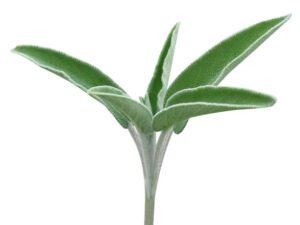 Cognitive Function and Memory Enhancement
Cognitive Function and Memory Enhancement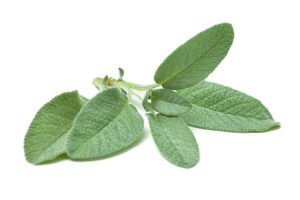 Digestive Health Support
Digestive Health Support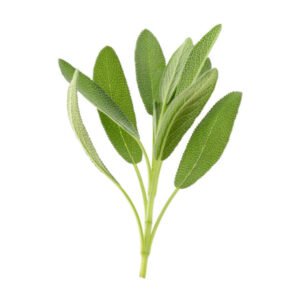 Oral Health Benefits
Oral Health Benefits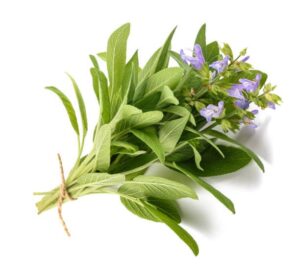 Diabetes Management
Diabetes Management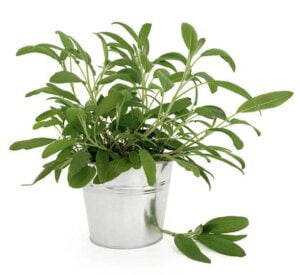 Anti-Cancer Potential
Anti-Cancer Potential